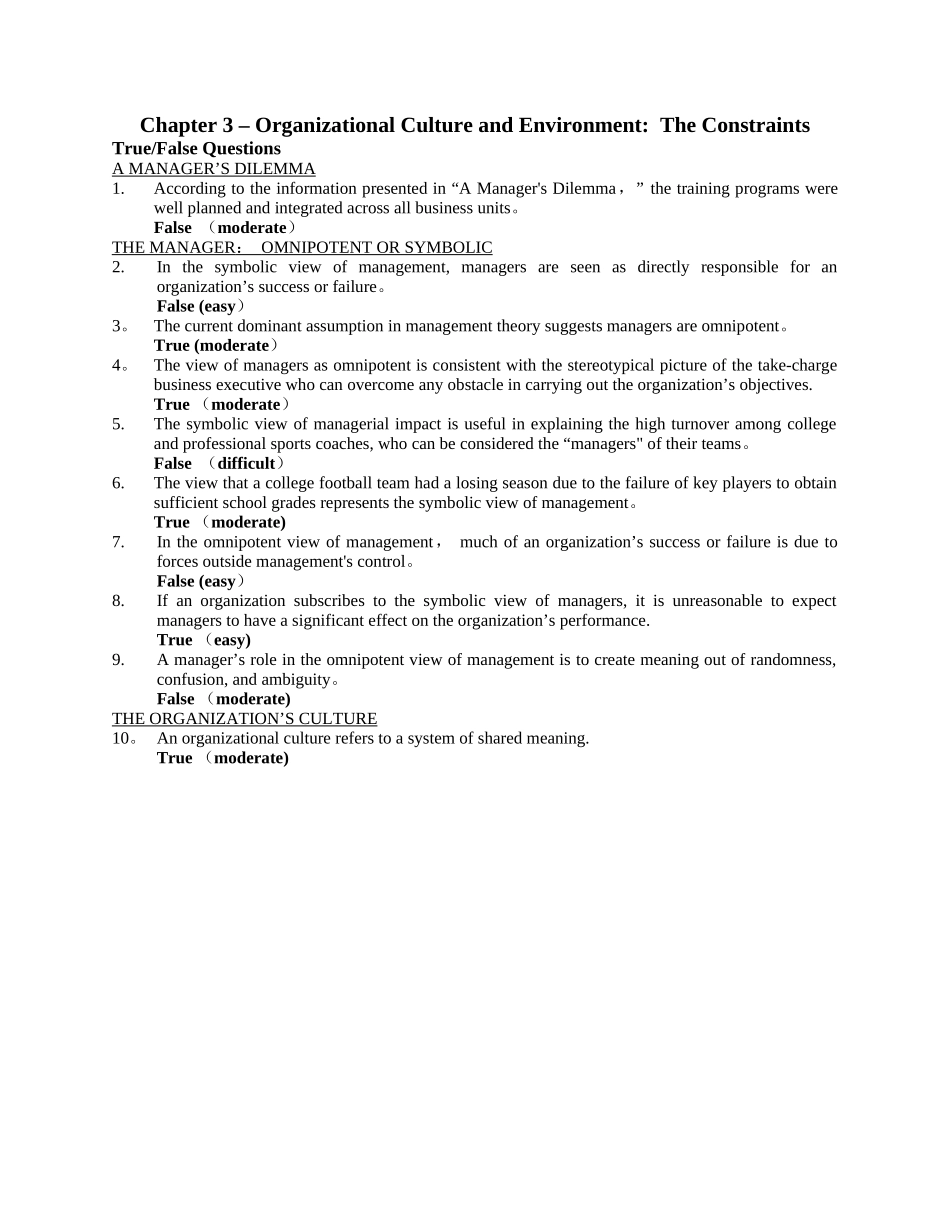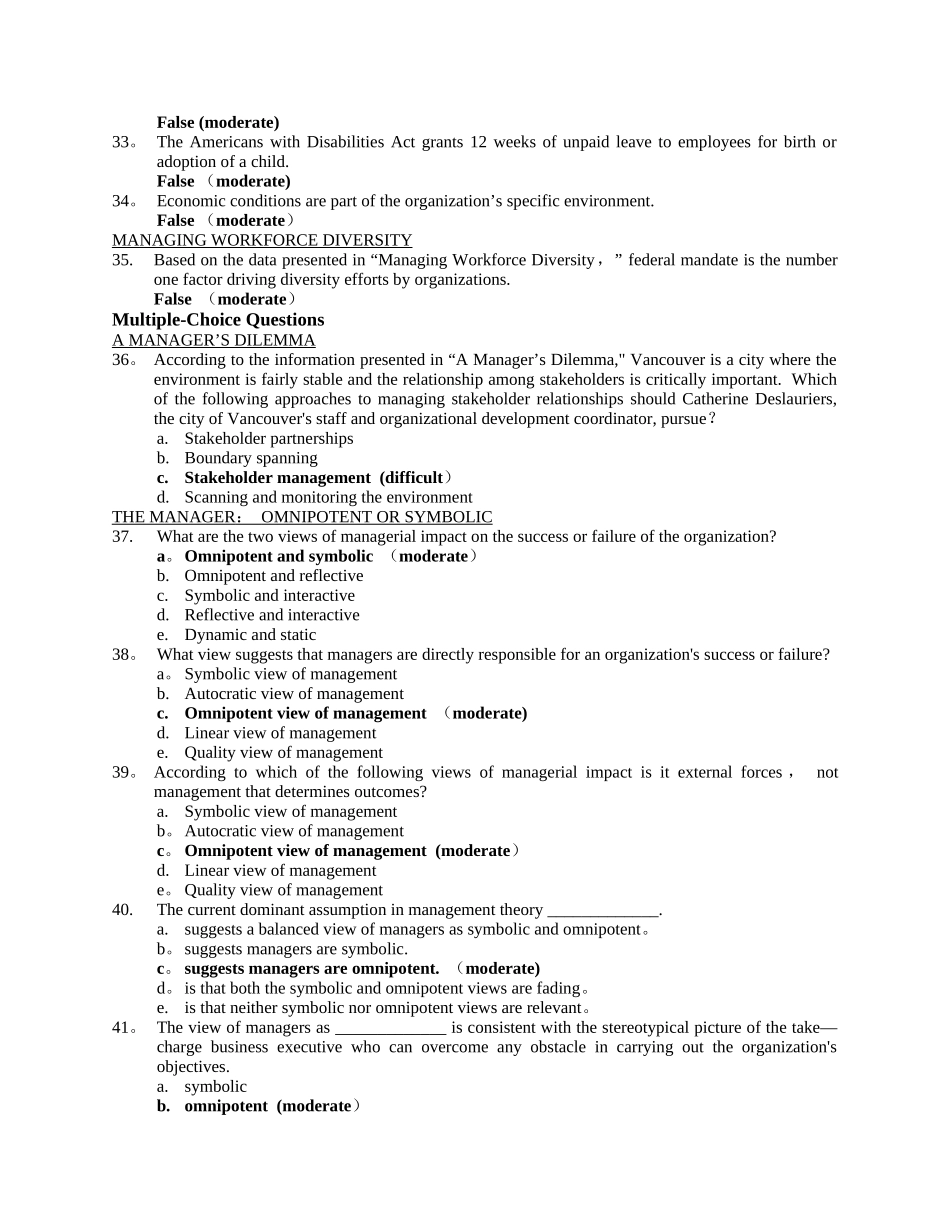Chapter 3 – Organizational Culture and Environment: The ConstraintsTrue/False QuestionsA MANAGER’S DILEMMA1.According to the information presented in “A Manager's Dilemma” ,the training programs were well planned and integrated across all business units。False (moderate)THE MANAGER : OMNIPOTENT OR SYMBOLIC 2.In the symbolic view of management, managers are seen as directly responsible for an organization’s success or failure。False (easy)3。The current dominant assumption in management theory suggests managers are omnipotent。True (moderate)4。The view of managers as omnipotent is consistent with the stereotypical picture of the take-charge business executive who can overcome any obstacle in carrying out the organization’s objectives.True (moderate)5.The symbolic view of managerial impact is useful in explaining the high turnover among college and professional sports coaches, who can be considered the “managers" of their teams。False (difficult)6.The view that a college football team had a losing season due to the failure of key players to obtain sufficient school grades represents the symbolic view of management。True (moderate)7.In the omnipotent view of management , much of an organization’s success or failure is due to forces outside management's control。False (easy)8.If an organization subscribes to the symbolic view of managers, it is unreasonable to expect managers to have a significant effect on the organization’s performance.True (easy)9.A manager’s role in the omnipotent view of management is to create meaning out of randomness, confusion, and ambiguity。False (moderate)THE ORGANIZATION’S CULTURE10。 An organizational culture refers to a system of shared meaning.True (moderate)11。 The organization...


